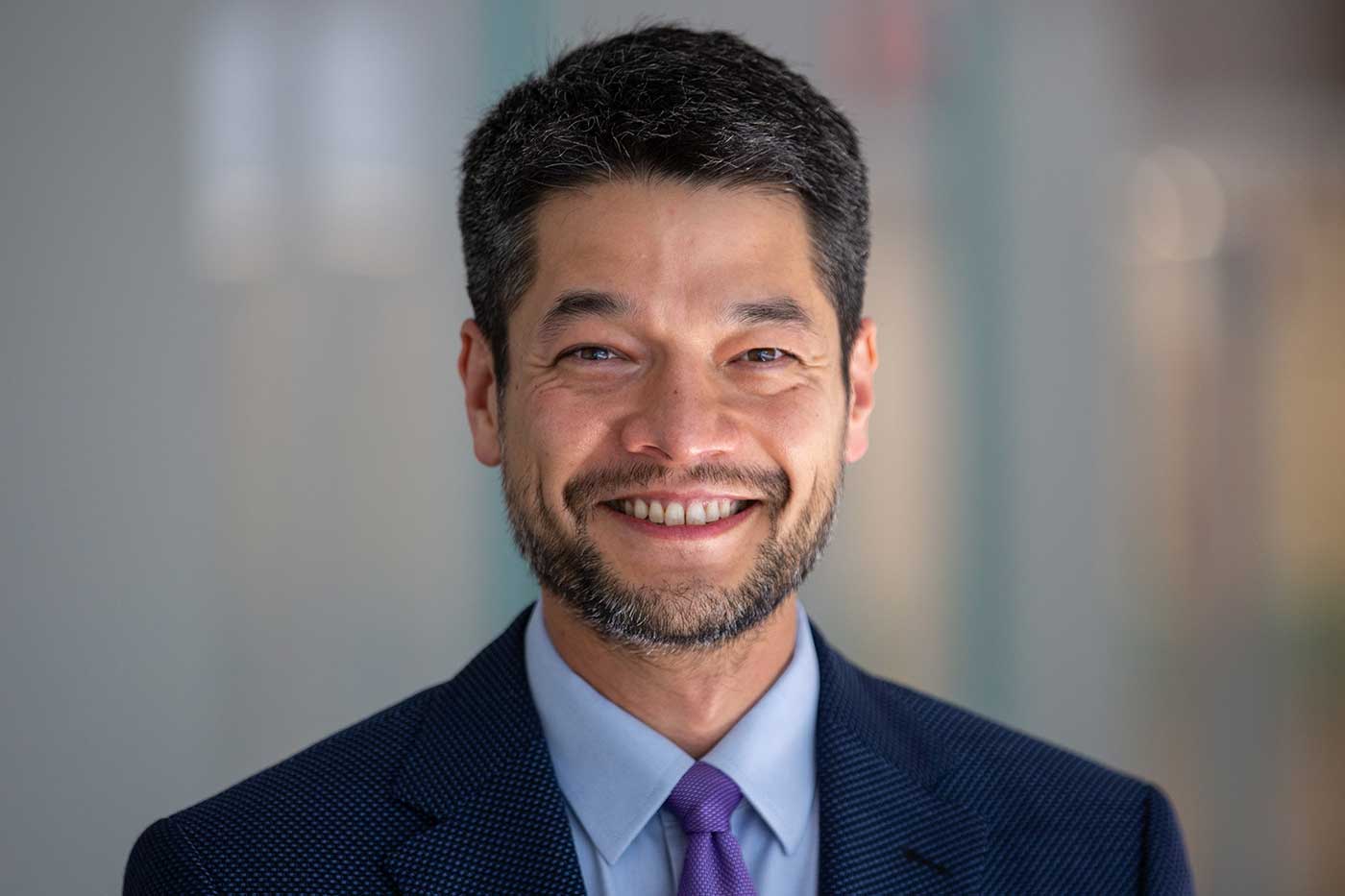He helped establish the medical device security field. Now, Kevin Fu is an ACM Fellow
Author: Zorain Nizamani
Date: 01.23.23

In Kevin Fu’s lab, researchers shoot lasers at computers to manipulate them and take control. They trick voice-controlled systems into hearing phantom voice commands by shining a small laser pointer at them. They can even shake smartphones to co-opt their sensors. Through all of this, Fu aims to protect medical devices from cybersecurity threats, to use his superpowers for the collective good in a field he helped to establish.
And as he joins Northeastern in January with a joint appointment between Khoury College and the College of Engineering, that medical device security work has made Fu into something else: a Fellow of the Association for Computing Machinery (ACM).
“I am honored to be elected to this august group of computer scientists. It means a lot to be recognized not just for my medical device security work, but also for the work my lab members have done in medical device security and embedded security,” Fu says. “It’s an honor to join a group that began with many founders of computer science.”
“I’m excited for Kevin and this important recognition of his leadership and impact in the computer science community,” says Khoury College Dean Elizabeth Mynatt, who earned the ACM Fellowship herself in 2015 for contributions to health information technology and human-centered computing. “This honor reflects both the significance of his research contributions and the real-world impact of his unique work. I look forward to the new paths he’ll chart as an educator and researcher at Khoury College.”
Although Fu’s interdisciplinary research portfolio spans everything from cryptographic systems to cardiology and regulatory affairs, his most recent research pertains to the physics of computer security, which is pivotal for safeguarding computers.
“I look at how to protect computer systems from lasers and acoustics and radio waves, such that a would-be adversary couldn’t take control of those systems,” Fu explains. He offers the example of a laser pointer, which, if shined on and off at the right rate through a glass window, could easily deceive voice-controlled assistants. “I teach students how to use physics to defend computers from these types of attacks. Students in my embedded security class learn how to use lasers to take control of microphones from 100 meters away.”
Apart from its intricacy, underlying Fu’s work is the ubiquity of computers and their role in our everyday lives. And wherever a computer system is present, so is the threat of hacking and malware. So predictably, Fu’s work isn’t confined to academic journals, as demonstrated by his stint as the inaugural Acting Director of Medical Device Security at the US Food and Drug Administration.
“Medical device security goes beyond just research papers and gets into the area of public policy,” Fu notes, “for instance, working with Congress and the White House to provide advice regarding science, technology, and engineering so they can make better policy decisions.”
Outside of medical devices, Fu’s work revolves around DNA-like forensic analysis of photographs.
“Using the physics of light and sound, my colleagues and I can extract functions of room audio from still images,” Fu says, explaining that audio is unwittingly modulated onto image sensors when someone speaks near a smartphone camera. “We are presently exploring commercialization of this patent-pending technology, which could exonerate or implicate defendants in a manner similar to DNA evidence. Our technology can determine with high certainty whose voice was speaking behind the camera, even when it was muted.” The team’s paper will be presented in May at the IEEE Symposium on Security and Privacy.
As he joins Northeastern after a decade at the University of Michigan, Fu says he values the university’s philosophy of interdisciplinary research and experiential education, including the co-op programs.
“It dovetails really well with my vision for medical device security and having students work together with industry for their studies. Very practical,” he says. “It’ll go well with the idea of ‘computer science for everyone’ because healthcare should serve everyone. I hope to help with that mission of trustworthy healthcare for everyone.”
Fu also founded the Archimedes Center for Health Care and Medical Device Cybersecurity, which helps medical device manufacturers, pharmaceutical manufacturers, and health care delivery organizations — all FDA-regulated industries — with basic training in Operational Technology cybersecurity engineering.
“Archimedes is moving to Northeastern and one of the key reasons is experiential learning. I have always been trying to set up more formal co-op programs, and that’s part of Northeastern’s core philosophy,” Fu says. “It’s will open up better-paying career opportunities for students, and it will be rewarding to see devices saving lives. Learning won’t only be from textbooks; students will visit surgical operating rooms and learn how computing helps patients.”
This sort of instruction reflects the ethos Fu also brings to his research, the same one he brings to his traveling medical device security seminar series for HBCUs and community colleges: spread whatever knowledge you gain to others.
“These opportunities will help my Northeastern students begin successful careers,” Fu says. “I also value the importance of diversity, equity, and inclusion, and I want to show students that there are many career opportunities available to those who enjoy both computing and helping people.”
Subscribe to Khoury News
The Khoury Network: Be in the know
Subscribe now to our monthly newsletter for the latest stories and achievements of our students and faculty